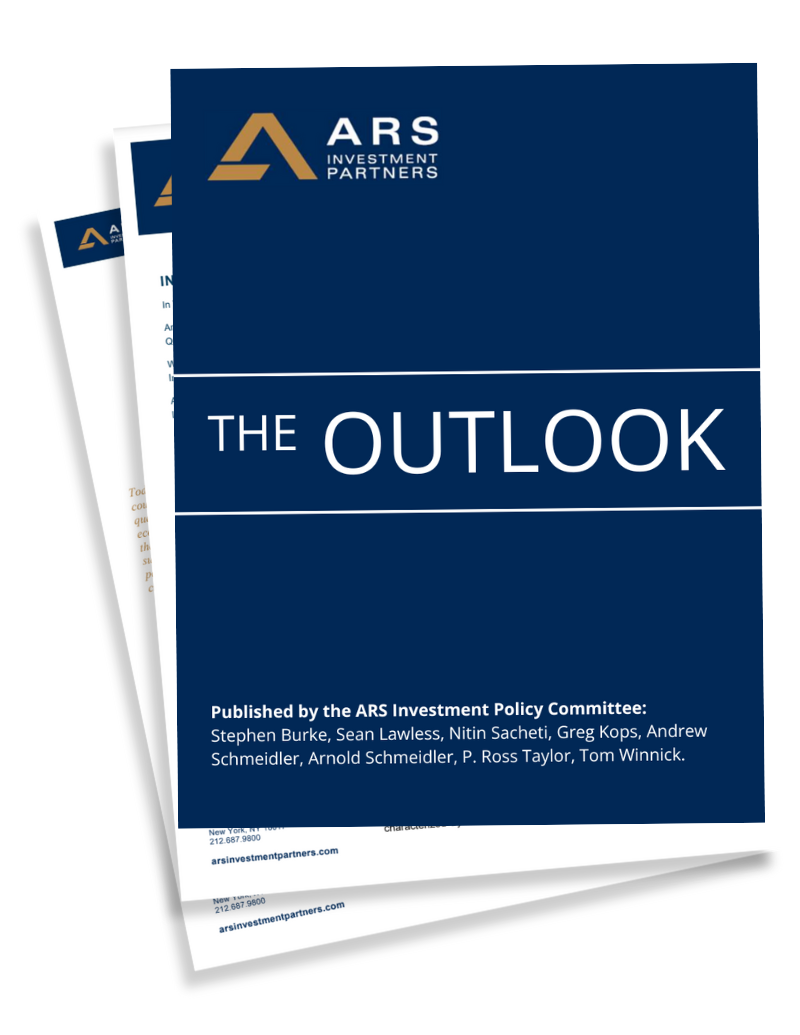Charting Economic Realignment
The global economy is facing a series of destabilizing shocks intensified by the Russian invasion of Ukraine. In addition to creating a tragic humanitarian crisis, the war is disrupting global supply chains, food, energy, trade, and geopolitics. While the current environment bears some resemblance to past periods such as the 1970s, it also has several distinctive characteristics.

In our previous Outlook, we highlighted significant shifts in the global economy and markets. While some nations were rebounding from pandemic-related challenges before the Russian invasion of Ukraine, others faced exacerbated economic, social, and political issues. The uncertain duration and severity of the conflict raise concerns of an inflationary slump and potential global recession. Though not our base case, investors should exercise caution given the variable outcomes and potential policy missteps. Furthermore, recent market downturns have created opportunities to invest in high-quality businesses at unusually low valuations.
Over the past decade, investors benefited from aggressive monetary and fiscal policies. However, the current landscape necessitates a shift from accommodative to restrictive policies to counter rising inflation, accelerated by the Ukraine conflict. Simultaneously, governments face budgetary constraints amidst essential investment programs, such as green energy transition and infrastructure improvements. The convergence of pandemic aftermaths and geopolitical tensions has eroded consumer and business confidence, presenting challenges for policymakers. Investing in beneficiaries of prevailing challenges, such as digitalization and healthcare advancements, remains crucial, albeit with an anticipated lag in realizing benefits. The uncertain economic outlook, compounded by financial tightening, suggests continued market volatility, emphasizing the importance of strategic investment decisions. We have capitalized on available opportunities to initiate or enhance positions in companies poised to thrive amid ongoing disruptions.
As inflationary pressures mount, central banks worldwide are transitioning from accommodating to tightening monetary policies, marking a significant shift in investment dynamics and risk assessment.
Governments face the daunting task of allocating funds to vital sectors such as energy and infrastructure amidst fiscal limitations, posing challenges to their capacity for stimulating economic revitalization and sustainable development.
The recent market downturn has precipitated a decline in valuations for top-tier enterprises, creating a ripe environment for discerning investors to acquire quality assets at favorable prices, thereby positioning themselves for long-term growth and resilience.
The confluence of pandemic aftermaths and geopolitical upheavals has spurred a profound reassessment of economic strategies and priorities on a global scale, heralding transformative shifts with far-reaching implications for financial markets and investment landscapes.
Navigating the current economic terrain requires a focus on sectors that are direct beneficiaries of the unfolding global changes. While immediate market conditions may seem daunting, the underlying secular trends, such as advancements in technology and shifts in global manufacturing, provide a roadmap for strategic investments. Investors should look beyond short-term disruptions, focusing on areas with potential for significant medium to long-term growth. Despite the challenges, the evolving economic environment presents opportunities for investors who can identify and capitalize on these trends effectively.
The information provided in this report is for informational purposes only and is not intended as investment advice, or an offer or solicitation for the purchase or sale of any financial instrument. This report is provided on the condition that it does not form a primary basis for any investment decisions. The opinions and analyses included in this report are based on current market conditions and are subject to change. ARS Investment Partners, LLC will not be responsible for any investment decisions based on this report. Please consult with a qualified financial advisor before making any investment decisions.
Sign up to receive The Outlook — our timely newsletter featuring our investment and economic thinking — and highlights from our latest market insights will be emailed directly to your inbox.
